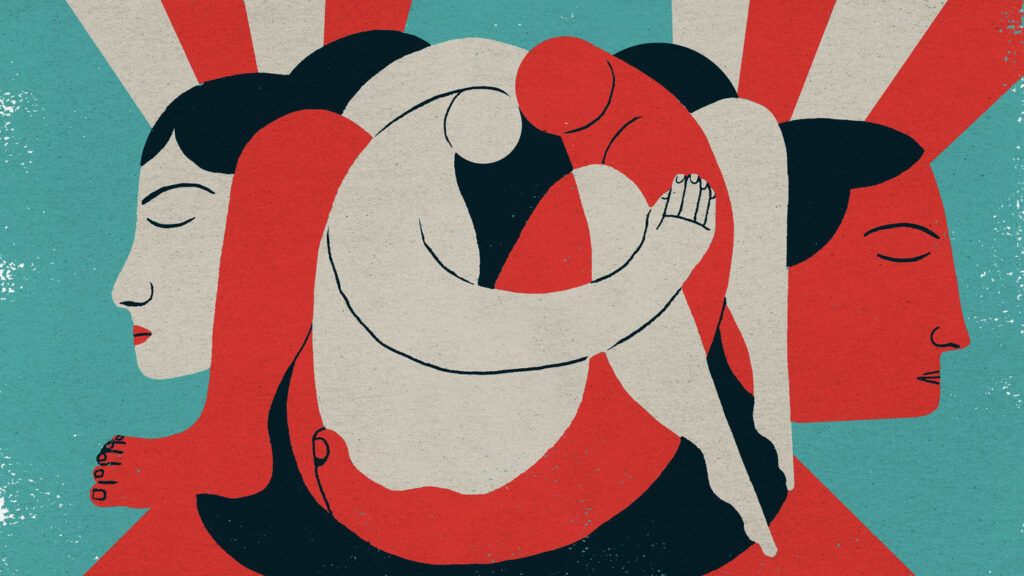Anxiety is a very common mental disorder that affects millions of people around the world. It can be tough to cope with, and sometimes the best thing you can do is find help. In this article, we’ll discuss some different ways you can get help for your anxiety, from therapy to self-help books. Hopefully, by reading this article you’ll be able to find the help you need and start to feel better about yourself.
Contents
What Is Anxiety?
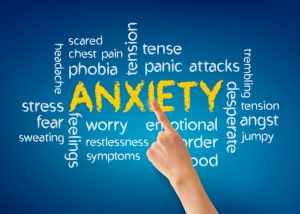
Anxiety is a feeling of apprehension and fear. It can be very debilitating and interfere with daily life. Many different things can help with anxiety, and it is important to find what works best for you.
Anxiety is a neuropsychiatric disorder characterized by a predisposition to fear or anxiety-related sensations, such as shortness of breath, dizziness, and heart palpitations. It often occurs together with other psychiatric disorders, such as depression and bipolar disorder.
There can be many negative impacts as well for people with anxiety. Anxiety can lead to a decrease in productivity, an inability to focus, and an increased risk for health problems such as heart disease and stroke. Untreated anxiety can also cause social withdrawal and even lead to suicide.
Different Things To Help With Anxiety
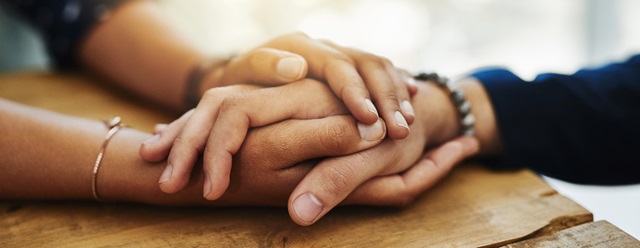
Treating this anxiety is very individualized and depends on the person’s specific needs and symptoms. One can always consult a mental health professional to get an individualized treatment plan. These may also have additional treatments such as medication. However, below are some general things that can help combat anxiety.
Medications
Anxiety medications are one of the most common treatments for anxiety disorders. There are many different types of medications available, and each has its own set of benefits and drawbacks. Some people find that one type of medication is effective enough, while others may need to try several before finding the right one.
Some of the types of medications that are used to treat anxiety disorders include:
- Benzodiazepines (e.g., Xanax, Klonopin)
- Beta-blockers (e.g., propranolol, Ativan)
- SSRIs (e.g., Prozac, Zoloft)
- SNRIs (e.g., Lexapro, Paxil)
- TCAs (e.g., Ativan, Valium)
Here are some tips to help you choose the right anxiety medication for you:
1. Talk to your doctor. Anxiety medications can have a variety of side effects, so it’s important to work with a doctor who is familiar with them. Your doctor will be able to recommend a specific medication and dosage, as well as discuss any potential side effects.
2. Consider your lifestyle factors. Some people find that specific types of anxiety medications work better for them if they are maintained on a regular schedule, while others do better when they take them intermittently. Discuss your lifestyle habits with your doctor to find the best medication for you.
3. Consider your budget. Anxiety medications can be expensive, so it’s important to weigh the cost against the benefits before making a decision. Additionally, some medications may have long-term costs associated with them (such as prescription refills). Speak with your doctor about budget considerations before starting treatment.
4. Be aware of your triggers. Some anxiety medications work better for some people if they are taken in conjunction with certain activities or situations. Be sure to discuss your triggers with your doctor so that you can identify which medications are best for you.
Cognitive Behavioral Therapy
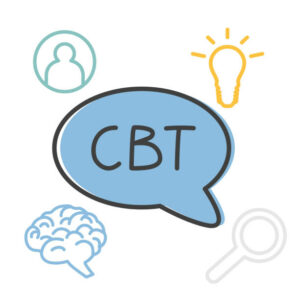
Cognitive behavioral therapy (CBT) is a type of psychotherapy that helps people change their thoughts and behaviors to manage anxiety. CBT is effective in treating several different forms of anxiety, including social anxiety, generalized anxiety disorder, panic disorder, and obsessive-compulsive disorder.
CBT is a relatively short-term treatment approach that typically lasts between six and twelve sessions. During sessions, CBT therapists help patients learn how to change their thoughts and behaviors to better manage their anxiety. Sessions typically begin with an assessment of the patient’s current symptoms and goals for treatment. From there, the therapist will work with the patient to develop a personalized treatment plan. Treatment typically includes strategies designed to change the patient’s thoughts and behaviors related to anxiety.
Some common treatments used in CBT for anxiety include:
-Educating patients about the causes and effects of anxiety
-Helping patients develop positive thought patterns about themselves
-Encouraging patients to practice relaxation techniques
-Teaching patients how to manage their worry and stress levels-Helping patients develop effective coping mechanisms
-Providing support and encouragement
Exposure Therapy
Exposure therapy is another form of therapy that is used to treat anxiety. This type of therapy involves exposing the person who is experiencing anxiety to situations or objects that they are afraid of but have not previously encountered. The goal of exposure therapy is to gradually increase the amount and variety of exposure until the individual no longer experiences anxiety in these situations.
This exposure therapy also can involve gradually exposing the person to a feared situation in a controlled setting. For example, a person with social anxiety might be asked to participate in group activities at a local library but only if they are exposed to other people first.
Mindfulness Meditation

Mindfulness meditation is one way to help manage anxiety. The practice has been shown to improve stress and anxiety levels, as well as focus and attention. It can also help you learn how to better deal with difficult emotions, both in the present and in the past. There are many different types of mindfulness meditation, so find one that works for you and gets you started. You can also read more about the benefits of mindfulness here.
Mindfulness meditations can be done in a variety of settings, including at home, in a park, or on a walk. You can also try one of these 10 beginner mindfulness meditation exercises.
Supplements for Anxiety
Supplements for anxiety can be a great way to help ease symptoms and improve the overall quality of life. Here are some top supplements for anxiety:
-Ginkgo biloba: Ginkgo is a well-known herb that has been used for centuries to treat cognitive issues, memory loss, and other conditions. It has also been studied for its effects on anxiety and mood disorders. In one study, ginkgo was found to improve the overall quality of life in people with a generalized anxiety disorder (GAD) by reducing symptoms and improving function.
-Ashwagandha: Ashwagandha is a root extract that has been used in Ayurveda for thousands of years. It is traditionally used to improve cognitive function, reduce stress, and improve overall well-being. In one study, ashwagandha was found to be effective in treating generalized anxiety disorder (GAD) in adults.
-Panax Ginseng: Panax ginseng is a popular herb that has been used in traditional Chinese medicine for hundreds of years. It has been studied for its effects on cognitive function, mood, and stress levels. In one study, Panax ginseng was found to be effective in treating generalized anxiety disorder (GAD) in adults.
-Valerian root: Valerian is a popular herb that has been used for centuries to treat anxiety and stress. It has also been studied for its effects on cognitive function and sleep. In one study, valerian was found to be effective in treating generalized anxiety disorder (GAD) in adults.
Self-Care Activities
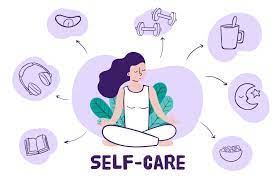
There are many things that you can do to help with anxiety. Some of these activities may work better for some people than for others, so it is important to find what works best for you. Here are some self-care activities that may be helpful:
-Take a break every once in a while. If you’re feeling overwhelmed or stressed, take a break and do something that you enjoy. This could be reading a book, spending time with friends or family, going for a walk, or doing anything else that makes you happy.
-Get exercise. Exercise has been shown to help reduce anxiety symptoms in both young and older adults. There are a variety of different types of exercise that can be helpful, so find one that works for you and start doing it regularly.
-Get plenty of sleep. It is important to get enough sleep to help reduce anxiety symptoms. Try to go to bed and wake up at the same time each day, and avoid watching television or using electronic devices in the hours leading up to bedtime.
-Talk about your feelings. Talking about your feelings can help manage anxiety symptoms. Whether it is with a friend, therapist, or another person you trust, talking about your thoughts and feelings can help you process and understand them.
-Take a class. Taking a class can help me learn new coping skills or in dealing with specific types of anxiety. There are many different types of classes available, so find one that is right for you and start attending.
-Get a pet. Pets can provide emotional and physical support, which can help manage anxiety. Choose a pet that is compatible with your lifestyle and personality, and take care of it properly.
Conclusion
If you’re like most people, anxiety has been a constant companion throughout your life. While there is no single answer that will work for everyone, here are some things that have worked for us in the past: practicing meditation and mindfulness, eating a balanced diet rich in antioxidants and Omega-3 fatty acids, getting enough exercise, spending time with loved ones and friends, and engaging in creative activities. Take what works for you and ditch the rest.
Hope this article was of help to you! If you are suffering from mental health disorders, you may seek help from Therapy Mantra. We have a team of highly trained and experienced therapists who can provide you with the tools and skills necessary for overcoming mental health disorders. Contact us today to schedule an online therapy or download our free Android or iOS app for more information.
